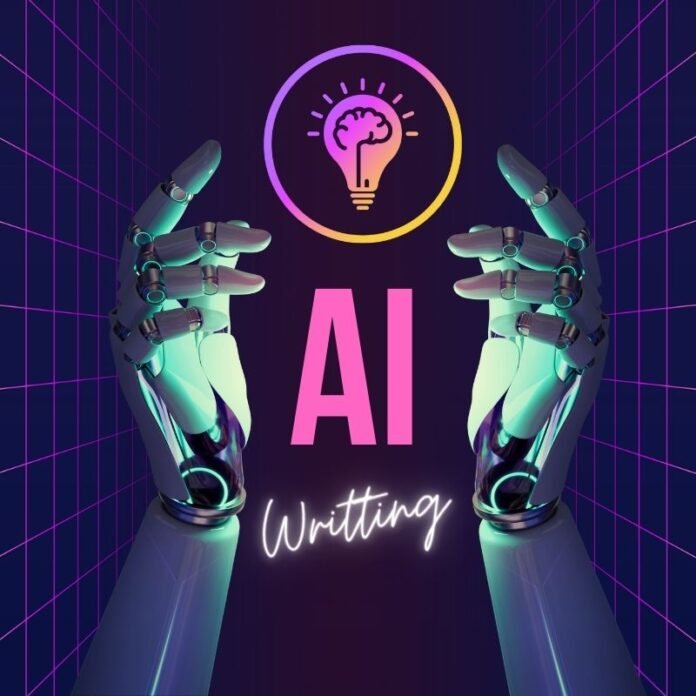Table of Contents
In today’s digital age, where content is king, the demand for high-quality written material is at an all-time high.
Whether you’re a blogger, a business owner, or a content creator, the pressure to consistently produce engaging and informative content can be overwhelming.
This is where AI content writing tools come into play. In this blog post, we’ll delve into what AI content writing tools are, how they work, their benefits and limitations, and whether you should consider using one.
The Rise of AI in Content Creation
Before we dive into the specifics of AI content writing tools, let’s take a moment to understand the broader landscape.
Artificial Intelligence (AI) has made significant strides in various industries, and content creation is no exception.
AI has revolutionized the way we generate written content, making it faster, more efficient, and often, more accurate.

What Are AI Content Writing Tools?
AI content writing tools are software applications that utilize artificial intelligence and natural language processing (NLP) algorithms to generate written content automatically.
These tools can create a wide range of content, from articles and blog posts to product descriptions and social media captions.
They have gained popularity for their ability to streamline content creation and reduce the time and effort required for writing tasks.
How Do AI Content Writing Tools Work?
To demystify the magic behind AI content writing tools, let’s take a closer look at their underlying mechanisms.
1. Data Training
AI content writing tools are trained on vast datasets of text from the internet. This training helps them understand the nuances of human language, including grammar, style, and context.
2. Natural Language Processing (NLP)
NLP is a branch of AI that allows these tools to interpret and generate text in a way that sounds natural and coherent to humans. It enables them to understand the meaning behind words and phrases and generate content that makes sense.
3. Pre-programmed Templates
Many AI content writing tools offer pre-programmed templates for different types of content, such as blog posts, news articles, or product descriptions. Users can input their specific requirements, and the tool generates content accordingly.
4. User Input
Users typically provide a brief or topic to the AI content writing tool, along with any specific instructions or keywords. The tool then uses this input to create content that aligns with the user’s requirements.
The Benefits of Using AI Content Writing Tools
Now that we’ve covered the basics of how AI content writing tools function, let’s explore why they have become so popular and the benefits they offer.
1. Time Efficiency
One of the most significant advantages of using AI content writing tools is their ability to save time. Writing high-quality content can be a time-consuming process, but these tools can generate content quickly, allowing you to focus on other important tasks.
2. Consistency
AI content writing tools can maintain a consistent writing style throughout your content, ensuring that your brand’s voice remains constant across various pieces of content.
3. Reducing Writer’s Block
Writer’s block can be a writer’s worst nightmare. AI content writing tools can help overcome this hurdle by providing a starting point or generating ideas when you’re stuck.
4. Handling Bulk Content
When you need to create a large volume of content, such as product descriptions for an e-commerce website, AI tools can be invaluable. They can produce content at scale without compromising quality.
5. Multilingual Support
Many AI content writing tools support multiple languages, making it easier to create content for global audiences.

The Limitations of AI Content Writing Tools
While AI content writing tools offer numerous benefits, they also have limitations that are important to consider.
1. Lack of Creativity
AI tools can generate content based on patterns and data, but they lack the creativity and originality that human writers bring to the table. They may produce technically correct but uninspired content.
2. Quality Control
AI-generated content may require human editing and oversight to ensure accuracy, coherence, and adherence to brand guidelines.
3. Plagiarism Concerns
AI content writing tools can inadvertently generate content that closely resembles existing materials, raising concerns about plagiarism. It’s crucial to use plagiarism-checking tools to avoid such issues.
4. Limited Understanding
AI tools may struggle to understand complex or highly specialized topics, leading to inaccuracies in the content they generate.
5. Initial Learning Curve
Getting the most out of AI content writing tools may require some time and effort in learning how to use them effectively.
Should You Use an AI Content Writing Tool?
Now that you have a comprehensive understanding of AI content writing tools, the question remains: should you use one? The answer largely depends on your specific needs and circumstances.
When to Consider Using AI Content Writing Tools
- Time-Sensitive Projects: If you’re working on projects with tight deadlines and need to produce content quickly, AI tools can be a valuable resource.
- Bulk Content Production: When you have to create a large volume of content, such as product descriptions or SEO articles, AI tools can help streamline the process.
- Content Ideation: AI tools can provide inspiration and ideas when you’re struggling to come up with topics for your content.
When to Exercise Caution
- Creative Writing: For content that requires a high degree of creativity, originality, or a unique voice, it’s best to rely on human writers.
- Specialized Subjects: If your content revolves around niche or highly technical subjects, AI tools may not grasp the nuances accurately.
- Brand Identity: If maintaining a distinct brand voice and style is crucial, you should be cautious when using AI tools and ensure human oversight.
Real-Life Examples
To illustrate the impact of AI content writing tools, let’s explore a couple of real-life examples:
Example 1: E-commerce Product Descriptions
Imagine you run an e-commerce website with thousands of products. Writing unique and compelling product descriptions for each item can be a daunting task.
AI content writing tools can help by generating descriptions based on product specifications and features. You can then review and edit the content to align it with your brand’s voice.
Example 2: Blog Post Outlines
You’re a blogger who wants to cover a trending topic.
AI tools can analyze the latest news articles and create an outline for your blog post, suggesting key points, statistics, and relevant subtopics.
This can serve as a valuable starting point for your research and writing.
FAQs About AI Content Writing Tools
Are AI content writing tools free to use?
AI content writing tools typically offer both free and paid versions. The free versions may have limitations in terms of features and word count, while premium plans offer more advanced capabilities.
Can AI content writing tools replace human writers entirely?
While AI tools can automate content generation, they cannot entirely replace human writers, especially for creative or highly specialized content that requires a personal touch.
Are there any ethical concerns with using AI content writing tools?
There are ethical considerations, such as ensuring that AI-generated content is accurate and not plagiarized. Additionally, some may argue that relying too heavily on AI tools could lead to job displacement in the writing industry.
Do AI content writing tools improve over time?
Yes, many AI tools use machine learning algorithms that improve their performance and understanding of language over time as they process more data and receive user feedback.
Can AI content writing tools create content in multiple languages?
Yes, many AI content writing tools support multiple languages, making them versatile for global content creation.
Conclusion
AI content writing tools are powerful aids that can significantly enhance your content creation process. They offer efficiency, consistency, and support for various types of content.
However, they are not a one-size-fits-all solution and may not be suitable for all content needs. It’s essential to weigh the benefits against the limitations and consider your specific requirements before deciding whether to incorporate AI tools into your content strategy.
Ultimately, the best approach may involve a combination of AI-generated content and the creativity and expertise of human writers, ensuring a harmonious blend of efficiency and quality in your content production efforts.

